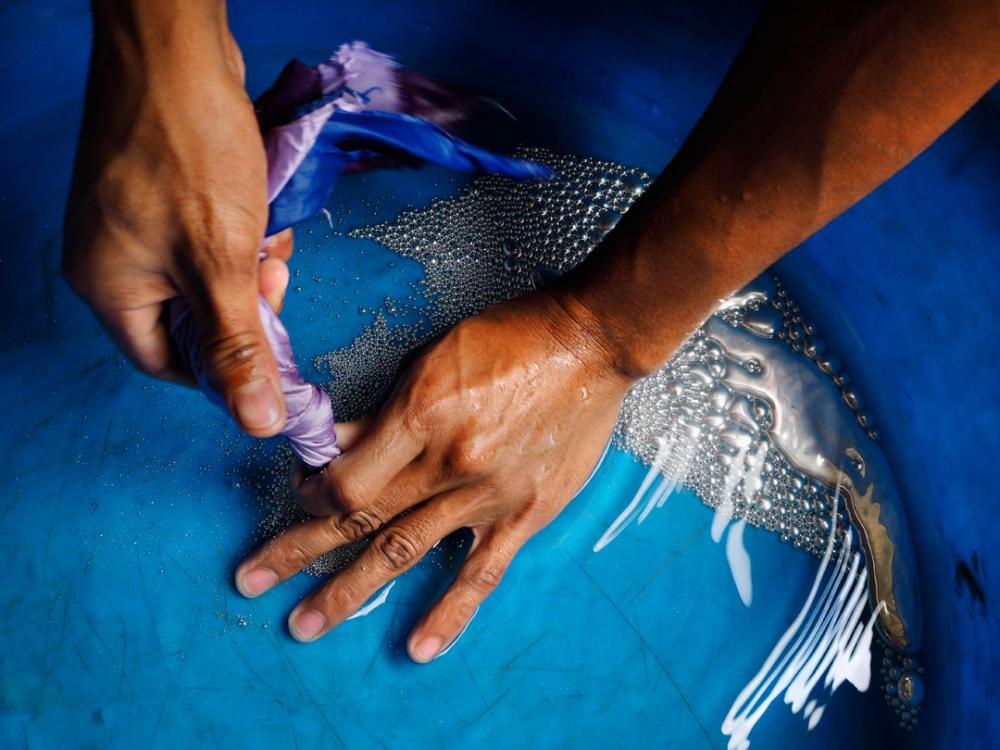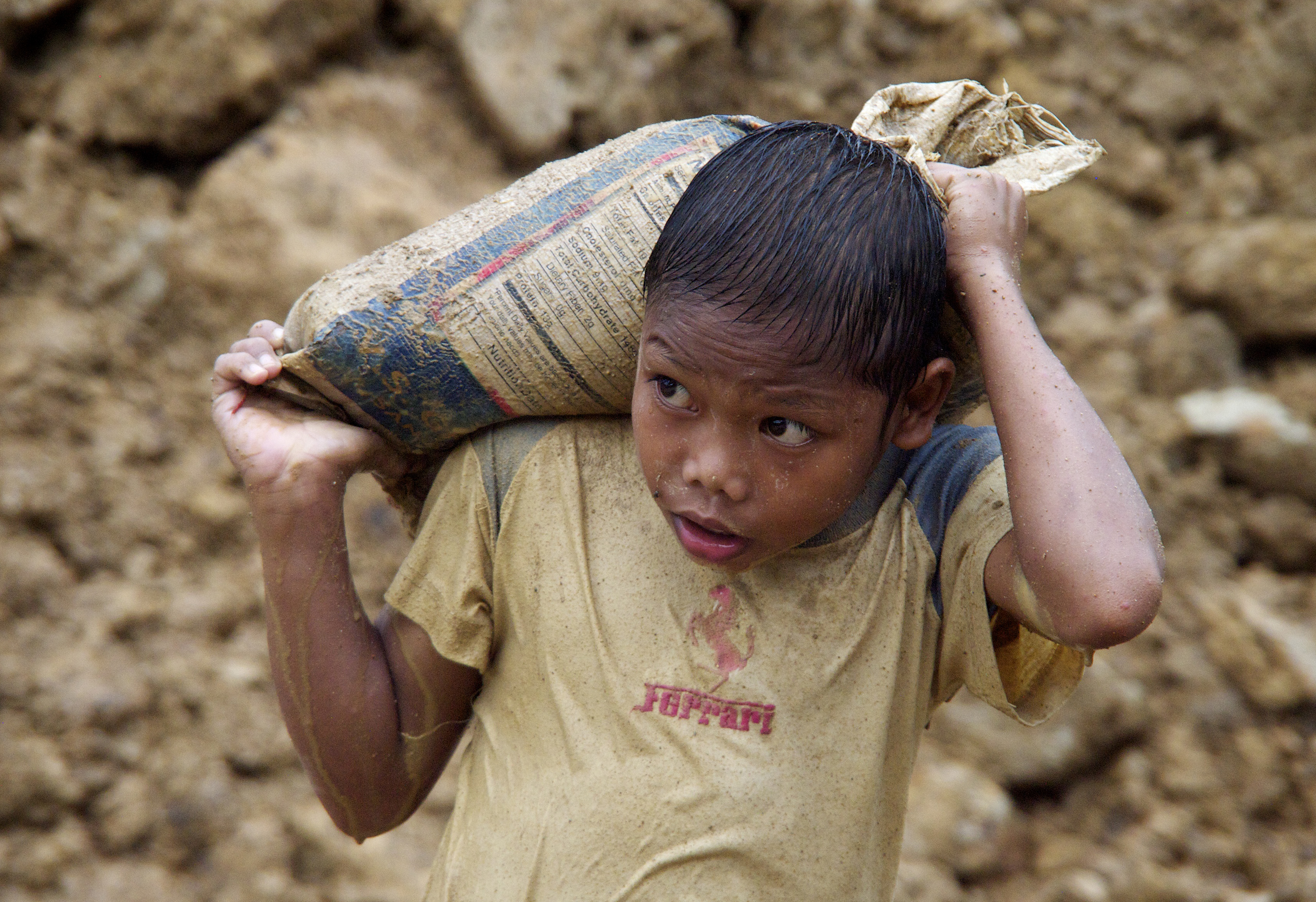
CHILDREN PAY THE PRICE FOR GOLD
Where does gold come from? Too often it comes from small-scale mines in the developing world that rely on the labor of small children, some as young as four. These illegal operations use child labor to dig the ore from mines and pits, to pan in streams or rivers and to haul sacks of ore that can weigh up to 60 pounds. They are also routinely exposed to mercury and cyanide used to extract the gold from the ore.
Pulitzer Center grantee Larry C. Price has traveled to Indonesia (where he is currently on assignment) and the Philippines to document the lives of some of these children in a series of reports for the PBS NewsHour, including this remarkable photo essay on the NewsHour website and a podcast produced by the Pulitzer Center's Quinn Libson.
At no small risk to himself, Larry photographed children working deep inside some of the mines. As he explained to Quinn, "I'm a documentary photographer and I truly believe that you have to get your lens on the subject whether it's uncomfortable or not."
DRAWING TO A CLOSE IN AFGHANISTAN
Eight years ago, artist and illustrator George Butler embedded with the British army in Afghanistan.
"For two weeks, I drew soldiers in the British camps in Helmand and Kabul. However, I was aware that, outside the foreign fortifications, ordinary life continued for most of the Afghan villagers."
Recently, as a Pulitzer Center grantee, George returned to Afghanistan to sketch a different aspect of this complex country.
"I drew Faizabad market, the police station in Kabul's District 10, a Red Cross prosthetic limb clinic and the scenes outside Herat's blue mosque. I drew exhaust-pipe fitters and stovemakers, pigeon sellers and Hajji Mirwais, a sewing-machine vendor." This wonderful gallery of drawings, now on display in England at Manchester's Imperial War Museum, is also published in The Guardian and The Monocle.
As George explains, "drawing offers different qualities—it does not compete with film or the brilliant mechanical tool of photography but it offers a different perspective on something we may have preexisting ideas about."
SOMETHING FISHY IN THE WATER
Deformed fish in the Athabasca River and a much higher than normal incidence of exotic cancers in the communities downstream from the Alberta tar sands would suggest a link between the oil extraction project and a growing health hazard, but Pulitzer Center grantee Dan Grossman met with doors slammed in his face and "no comment" from public officials when he traveled to Fort Chipewyan to learn more.
"It took some effort to find anyone there who will discuss pollution from the mines. The Conservative government of Stephen Harper, a relentless tar sands booster, has clamped down on unapproved statements about Alberta oil by government workers," writes Dan in this report for GlobalPost.
"I used to be an environmentalist," one frustrated Canadian conservation officer told Dan. "But I can't talk about the oil sands anymore."
UNTOLD STORIES
Stories by Pulitzer Center grantees appear in news outlets around the world but you can also find insight, color, and unforgettable vignettes from their projects on Untold Stories, a channel for reporting that goes directly to our site.
This week you'll find Daniella Zalcman's interview with an Ugandan LGBTI activist, Holly Pickett's story of Syrian refugees reunited in Germany, and Ian Johnson's back story on the story by him and Sim Chi Yin on Beijing's basement-dwelling "rat tribe."
You'll also find two Untold Stories from Elon University student fellow Katherine Blunt, reporting from Guatemala on the local impact of fair-trade coffee and on how the internet is helping create job opportunities for indigenous women.
Until next week,
Tom Hundley
Senior Editor





